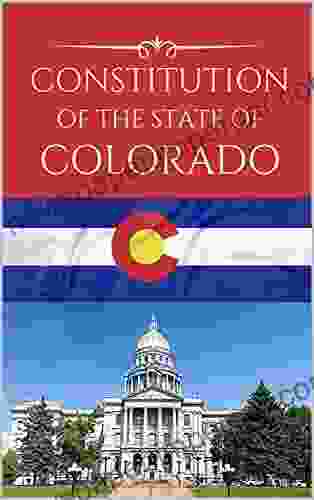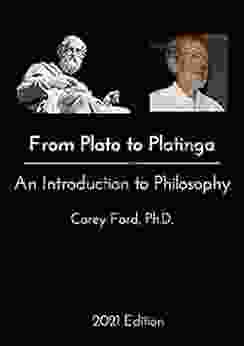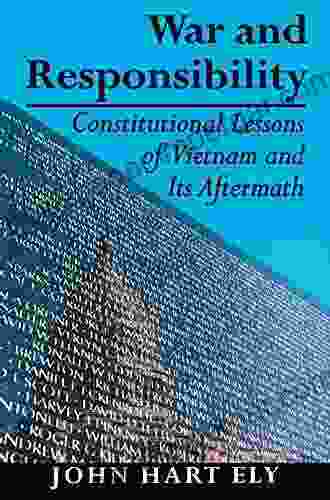Constitutional Lessons of Vietnam and Its Aftermath: A Comprehensive Examination of Legal Implications

The Vietnam War, a protracted and controversial conflict, has left a lasting legacy on the United States. Beyond its military and geopolitical ramifications, the war has also had a profound impact on American constitutional law.
This comprehensive article will delve into the constitutional lessons gleaned from the Vietnam War and its aftermath, exploring the legal principles and precedents that were tested, challenged, and ultimately shaped by this transformative event.
5 out of 5
| Language | : | English |
| File size | : | 7365 KB |
| Text-to-Speech | : | Enabled |
| Screen Reader | : | Supported |
| Enhanced typesetting | : | Enabled |
| Word Wise | : | Enabled |
| Print length | : | 254 pages |
The War Powers Resolution: Defining Presidential Authority
One of the most significant constitutional legacies of the Vietnam War is the passage of the War Powers Resolution in 1973. This legislation was enacted as a response to President Lyndon B. Johnson's escalation of American military involvement in Vietnam without explicit congressional approval.
The War Powers Resolution seeks to limit the president's ability to engage in unauthorized military action. It requires the president to consult with Congress before committing American forces to hostilities, and it sets a 60-day limit on such operations unless Congress specifically authorizes further involvement.
The War Powers Resolution has been invoked on several occasions since its passage, including during the 1991 Gulf War and the 2003 invasion of Iraq. While its effectiveness has been subject to debate, the resolution remains an important legal tool for ensuring congressional oversight of military actions.
The First Amendment and Anti-War Protests
The Vietnam War also sparked a wave of anti-war protests in the United States. These protests often led to clashes with law enforcement, resulting in numerous arrests and instances of police brutality.
The government's response to these protests raised significant First Amendment issues concerning freedom of speech and assembly. The Supreme Court ruled in several cases that the government has a legitimate interest in maintaining public Free Download, but it must do so in a way that protects free expression.
The Court's decisions in cases such as Brandenburg v. Ohio (1969) and Tinker v. Des Moines (1969) established important principles for balancing public safety concerns with First Amendment rights. These decisions continue to shape the legal framework for regulating protests and demonstrations.
Habeas Corpus and the Detention of Prisoners
The Vietnam War also brought to light the issue of habeas corpus, the right to challenge the legality of one's detention. During the war, hundreds of American soldiers were detained and held without formal charges or access to legal representation.
In response to thesedetentions, the Supreme Court ruled in Ex parte Milligan (1866) that the government cannot suspend habeas corpus during periods of war or rebellion, except in cases where martial law has been declared. This decision established the principle that individuals cannot be deprived of their liberty without the due process of law.
The issue of habeas corpus has remained relevant in the context of the post-9/11 detention of suspected terrorists. The Supreme Court has ruled that the government may detain individuals without charge if they are considered "enemy combatants," but these individuals must be afforded certain procedural rights, including the opportunity to challenge their detention.
The Geneva Conventions and Prisoners of War
The Vietnam War also highlighted the importance of the Geneva Conventions, a set of treaties that govern the treatment of prisoners of war (POWs). The United States ratified the Geneva Conventions in 1955, but allegations of mistreatment and torture of American POWs by North Vietnamese forces during the war led to significant controversy.
In response to these allegations, the US government established the Select Committee on POW/MIA Affairs to investigate the treatment of American prisoners. The committee's findings revealed widespread violations of the Geneva Conventions and spurred efforts to ensure compliance with these international humanitarian law.
The Geneva Conventions continue to be an essential framework for protecting the rights of POWs and preventing acts of cruelty and abuse.
The Legacy of Vietnam for American Constitutional Law
The Vietnam War has had a lasting impact on American constitutional law. The War Powers Resolution, the protection of First Amendment rights, the principles of habeas corpus, and the enforcement of the Geneva Conventions are just some of the legal legacies that stem from this transformative conflict.
These lessons have shaped the legal landscape in the United States and continue to inform debates about the role of government, the rights of individuals, and the limits of executive power in times of war.
The Constitutional Lessons of Vietnam and Its Aftermath is a complex and multifaceted topic that requires careful examination. This article has provided a comprehensive overview of some of the key legal principles and precedents that were tested, challenged, and ultimately shaped by the Vietnam War.
Understanding these lessons is crucial for comprehending the evolution of American constitutional law and its implications for present-day debates about war, civil liberties, and the role of the United States in the world.
5 out of 5
| Language | : | English |
| File size | : | 7365 KB |
| Text-to-Speech | : | Enabled |
| Screen Reader | : | Supported |
| Enhanced typesetting | : | Enabled |
| Word Wise | : | Enabled |
| Print length | : | 254 pages |
Do you want to contribute by writing guest posts on this blog?
Please contact us and send us a resume of previous articles that you have written.
 Book
Book Novel
Novel Page
Page Chapter
Chapter Text
Text Story
Story Genre
Genre Reader
Reader Library
Library Paperback
Paperback E-book
E-book Magazine
Magazine Newspaper
Newspaper Paragraph
Paragraph Sentence
Sentence Bookmark
Bookmark Shelf
Shelf Glossary
Glossary Bibliography
Bibliography Foreword
Foreword Preface
Preface Synopsis
Synopsis Annotation
Annotation Footnote
Footnote Manuscript
Manuscript Scroll
Scroll Codex
Codex Tome
Tome Bestseller
Bestseller Classics
Classics Library card
Library card Narrative
Narrative Biography
Biography Autobiography
Autobiography Memoir
Memoir Reference
Reference Encyclopedia
Encyclopedia Joseph Kostiner
Joseph Kostiner John Stuart Mill
John Stuart Mill Jonathan Barnes
Jonathan Barnes John F Lyons
John F Lyons Jon Andre Lundal
Jon Andre Lundal Jon Haws
Jon Haws Joseph Epstein
Joseph Epstein Jose Perez Castineira
Jose Perez Castineira John Torrey Morse
John Torrey Morse John Foxjohn
John Foxjohn John Woods
John Woods John J Culbertson
John J Culbertson John Stark
John Stark John Miller
John Miller John F Steinle
John F Steinle Jonathan D Moreno
Jonathan D Moreno John G Webster
John G Webster John Marsh
John Marsh John Williamson
John Williamson Joseph Bastianich
Joseph Bastianich
Light bulbAdvertise smarter! Our strategic ad space ensures maximum exposure. Reserve your spot today!

 Brayden ReedHomemade Bread Recipes For Beginners And Pros: The Ultimate Guide to Baking...
Brayden ReedHomemade Bread Recipes For Beginners And Pros: The Ultimate Guide to Baking... Edward BellFollow ·16.4k
Edward BellFollow ·16.4k Gabriel HayesFollow ·8k
Gabriel HayesFollow ·8k Leo MitchellFollow ·19.6k
Leo MitchellFollow ·19.6k Anton FosterFollow ·16.5k
Anton FosterFollow ·16.5k Felipe BlairFollow ·15.6k
Felipe BlairFollow ·15.6k Louis HayesFollow ·15.6k
Louis HayesFollow ·15.6k Ibrahim BlairFollow ·11.9k
Ibrahim BlairFollow ·11.9k Kenneth ParkerFollow ·11.7k
Kenneth ParkerFollow ·11.7k

 Jake Powell
Jake PowellThe Constitution of the State of Colorado: A Legacy of...
Since its adoption in 1876, the...

 Devin Ross
Devin RossFrom Plato to Plantinga: A Journey Through the History of...
Philosophy is the study of...

 Robin Powell
Robin PowellWords That Hurt, Words That Heal: The Power of Language...
Words are powerful. They can...

 T.S. Eliot
T.S. EliotTantalize Your Taste Buds with Over 90 Low-Carb Ethnic...
Indulge in a Culinary Adventure with "Over...
5 out of 5
| Language | : | English |
| File size | : | 7365 KB |
| Text-to-Speech | : | Enabled |
| Screen Reader | : | Supported |
| Enhanced typesetting | : | Enabled |
| Word Wise | : | Enabled |
| Print length | : | 254 pages |














